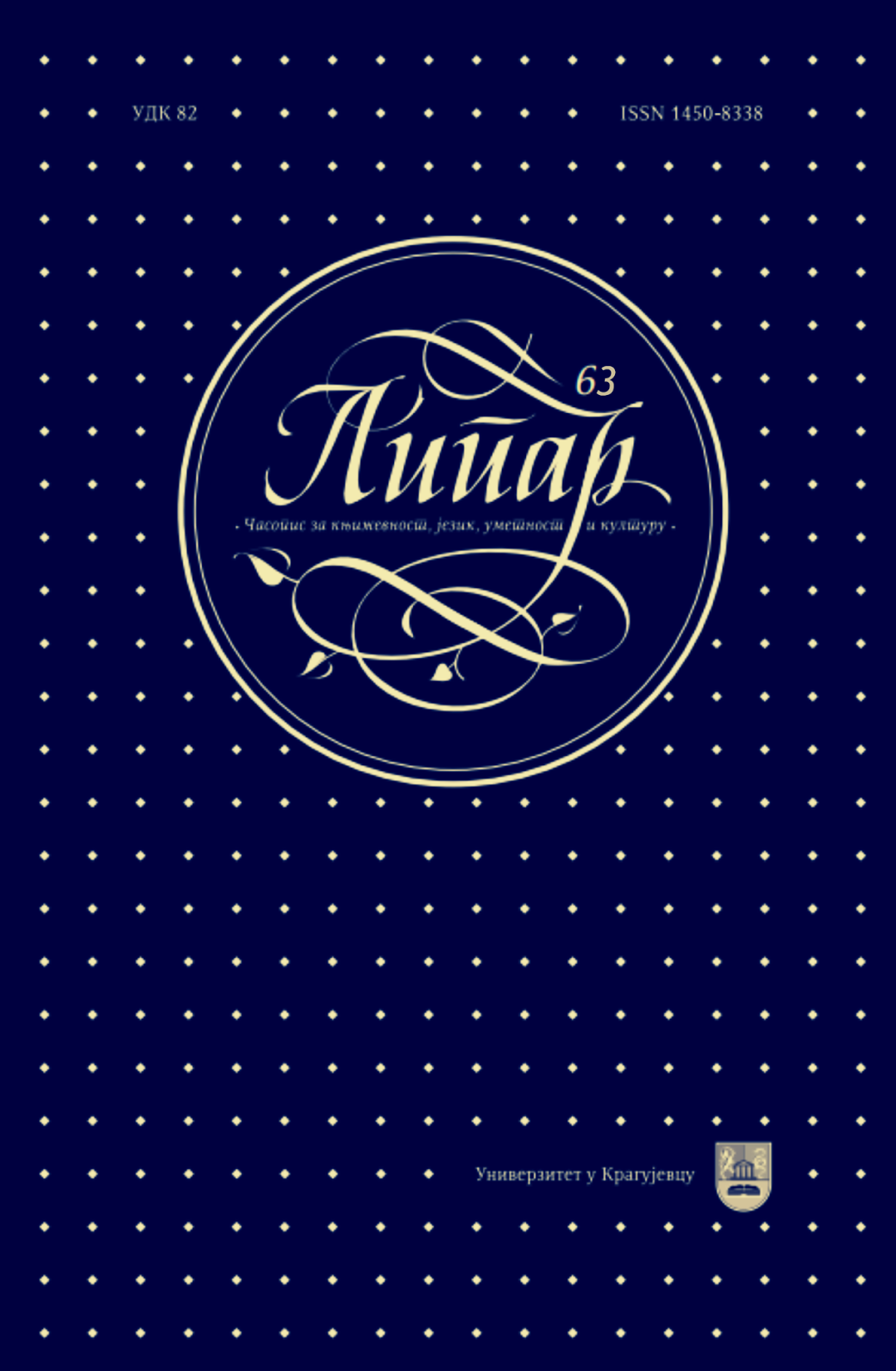DISCOURSE ON LOVE IN A COLONIAL CONTEXT:
THE LAST SEPTEMBER BY ELIZABETH BOWEN AND
JOHN BANVILLE
DISCOURSE ON LOVE IN A COLONIAL CONTEXT:
THE LAST SEPTEMBER BY ELIZABETH BOWEN AND
JOHN BANVILLE
Author(s): Tijana ParezanovićSubject(s): Language and Literature Studies, Studies of Literature, Comparative Study of Literature, Other Language Literature, Philology
Published by: Универзитет у Крагујевцу
Keywords: The Last September; Elizabeth Bowen; John Banville; colonial discourse; discourse on love; the process of othering; identical difference; imaginary love; institutional love; real love
Summary/Abstract: Approaching Anglo-Irish fiction from the perspective of postcolonial studies, the big house narratives emerge as an enduringly present and constantly changing genre. This paper examines the narrative of the big house in Elizabeth Bowen’s 1929 novel The Last September and the 1999 film based on it, with the screenplay written by John Banville. The analysis is focused on the representations of love in both texts, and carried out on the premise that discourse on love is employed with the purpose of challenging and finally shattering colonial discourse. The analysis relies mainly on the theoretical framework set by Lauren Berlant (based on Jacques Lacan’s interpretation of desire) and Alain Badiou. One particular element of colonial discourse that becomes vulnerable once discourse on love is introduced through the depictions of different kinds of emotional relationships is the process of othering. As the relationships of the protagonist Lois Farquar with different men are observed and labeled as imaginary, institutional, and real love, following partly Berlant and Lacan, the interpretation of the narrative comes to a conclusion that all these kinds of love essentially undermine the intricate processes of the creation of the colonial other. The film proves to be a major contribution to the narrative in this respect, since it departs largely from Bowen’s original text precisely in its explicit depiction of what the paper refers to as real love, which exemplifies, in Badiou’s terms, “the paradox of an identical difference.”
Journal: Липар - часопис за књижевност, језик, уметност и културу
- Issue Year: XVIII/2017
- Issue No: 63
- Page Range: 141-159
- Page Count: 19
- Language: English

